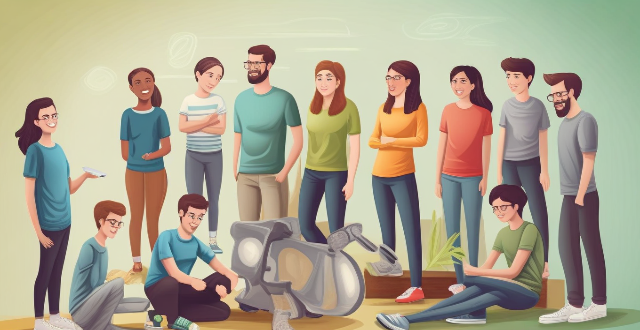Teachers play a pivotal role in preparing students for academic competitions by offering guidance, resources, skill enhancement, confidence building, practical application opportunities, and emotional intelligence development. They provide materials, help with time management, encourage critical thinking and research skills, offer positive reinforcement, facilitate networking, organize mock competitions, teach timed practice strategies, introduce stress management techniques, and emphasize teamwork and sportsmanship. This comprehensive support not only helps students succeed in competitions but also equips them with valuable lifelong learning skills.

Teachers' Role in Preparing Students for Academic Competitions
Guidance and Support
Teachers play a vital role in guiding and supporting students as they prepare for academic competitions. They provide direction, motivation, and feedback to help students achieve their goals.
Providing Resources
- Materials: Teachers often provide or recommend relevant materials such as textbooks, articles, and practice tests.
- Time Management: They assist students in managing their time effectively, ensuring that they can balance their regular studies with competition preparation.
Enhancing Skills
- Critical Thinking: Teachers encourage critical thinking skills through discussions and problem-solving activities.
- Research: They guide students in conducting research, analyzing data, and synthesizing information.
Building Confidence
- Positive Reinforcement: Teachers offer positive reinforcement to boost students' confidence and self-esteem.
- Mistakes as Learning Opportunities: They reframe mistakes as opportunities for growth rather than failures.
Networking and Collaboration
- Connections: Teachers often have connections within the academic community that they can use to facilitate collaborations or provide additional resources.
- Mentorship: They may connect students with mentors who have expertise in the competition subject matter.
Practical Application
Mock Competitions
- Simulation: Teachers can organize mock competitions to simulate the actual event, helping students get accustomed to the format and pressure.
- Feedback: After these simulations, teachers provide constructive feedback to improve performance.
Timed Practice
- Pacing: They teach students how to pace themselves during timed tasks to maximize efficiency and accuracy.
- Strategy Development: Teachers work with students to develop strategies for tackling different types of questions or problems.
Emotional Intelligence
Stress Management
- Coping Mechanisms: Teachers introduce coping mechanisms to help students manage stress before and during competitions.
- Mindfulness: They may incorporate mindfulness techniques to promote focus and reduce anxiety.
Teamwork and Sportsmanship
- Collaborative Skills: For team-based competitions, teachers emphasize the importance of effective communication and collaboration among teammates.
- Etiquette: They teach students about sportsmanship and the etiquette expected in academic settings.
Conclusion
In summary, teachers are instrumental in preparing students for academic competitions by offering guidance, enhancing skills, building confidence, facilitating practical experiences, and fostering emotional intelligence. Their dedication and expertise not only contribute to students' success in competitions but also equip them with valuable lifelong learning skills.